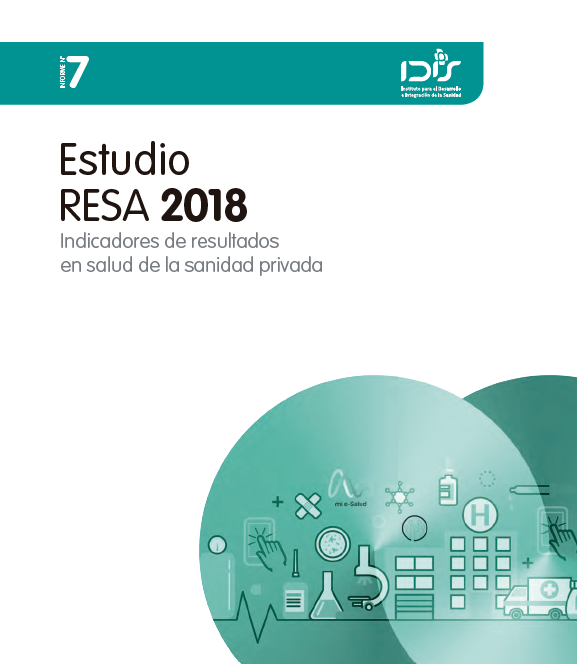Seventh edition of this report on Health Outcome Indicators in Private Healthcare prepared by Antares Consulting for IDIS (Institute for the Development and Integration of Healthcare), corresponding to 2017 data.
The growing participation of centres of recognised prestige, the transparency of the information provided and the reliability of its results means that it is now a fully representative study of Private Healthcare and places it among the studies and reports of the most consolidated national and international observatories that document health results.
And the first result that stands out more and more strongly is precisely the commitment to transparency of the private centres: more than 500 private centres show their information: 325 hospitals and outpatient centres, which contribute data to the RESA 2018 Study, and 186 assisted reproduction centres, with data provided by the Spanish Fertility Society.
But surely the most striking data is not the participation of centres but the volume of information they have provided:
– 1,380,436 hospital discharges, which represent 26% of the total number of public and private hospital discharges in Spain.
– 750,647 surgical operations, 48% of total private activity and 15% of that of the Spanish health system.
– 2,676,218 outpatient consultations, which represents 15% of private activity and 3% of the whole of the national health system. Bearing in mind that the Study
RESA 2018 only analyses the data of four specialities (dermatology, ophthalmology, traumatology and orthopaedics, and obstetrics and gynaecology), this volume is of extraordinary weight. It constitutes the great leap forward achieved this year: the volume of outpatient data has increased by 150% with respect to the RESA 2017 Study.
– 4,735,640 hospital emergencies. This represents 67% of private healthcare and 16% of the total activity of the system.
– 1,500,000 diagnostic imaging studies (mammography, CT and MRI).
– Almost 80,000 cycles of in vitro fertilisation treatment.
– 8,700 patients with chronic renal failure treated with dialysis.
These data mean that in almost all lines of activity, volumes are higher than those of almost all the Autonomous Communities and indicate that the RESA Study has undoubtedly been consolidated as one of the studies with the greatest volume of data in Spain.
Entering into the content, this year five new indicators are included:
– The rate of c-cection births in order to accurately quantify the difference that exists between the private and public sectors due to multiple causes.
– Four indicators from the EIQI Project (European Inpatient Quality Indicators) which include data on the proportion of gallbladder surgery performed with laparoscopy, mortality from pneumonia and mortality from two types of hip fracture.
- Authors: Antares Consulting, Instituto para el Desarrollo e Integración de la Sanidad
- Language: Spanish
